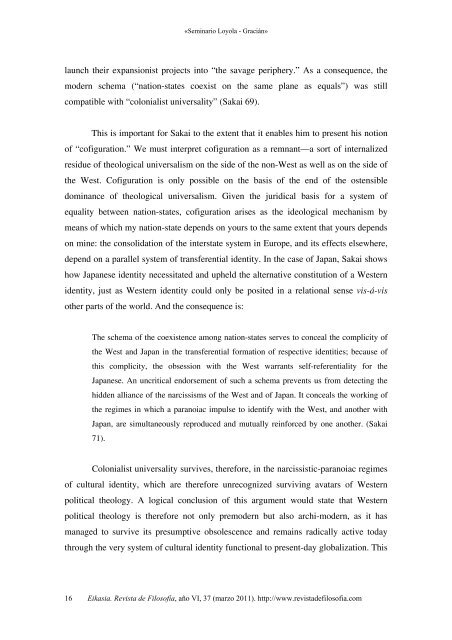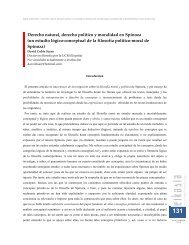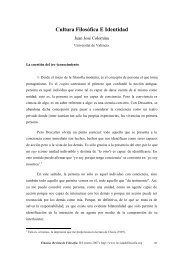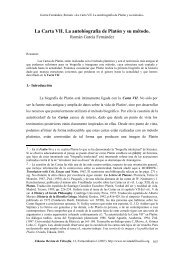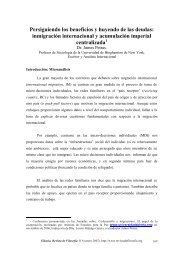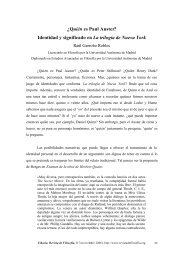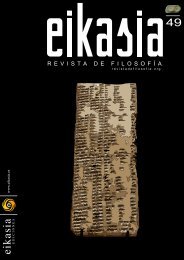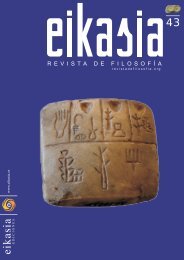Descargar número completo (3,83 MB) - Eikasia
Descargar número completo (3,83 MB) - Eikasia
Descargar número completo (3,83 MB) - Eikasia
Create successful ePaper yourself
Turn your PDF publications into a flip-book with our unique Google optimized e-Paper software.
«Seminario Loyola - Gracián»<br />
launch their expansionist projects into “the savage periphery.” As a consequence, the<br />
modern schema (“nation-states coexist on the same plane as equals”) was still<br />
compatible with “colonialist universality” (Sakai 69).<br />
This is important for Sakai to the extent that it enables him to present his notion<br />
of “cofiguration.” We must interpret cofiguration as a remnant—a sort of internalized<br />
residue of theological universalism on the side of the non-West as well as on the side of<br />
the West. Cofiguration is only possible on the basis of the end of the ostensible<br />
dominance of theological universalism. Given the juridical basis for a system of<br />
equality between nation-states, cofiguration arises as the ideological mechanism by<br />
means of which my nation-state depends on yours to the same extent that yours depends<br />
on mine: the consolidation of the interstate system in Europe, and its effects elsewhere,<br />
depend on a parallel system of transferential identity. In the case of Japan, Sakai shows<br />
how Japanese identity necessitated and upheld the alternative constitution of a Western<br />
identity, just as Western identity could only be posited in a relational sense vis-á-vis<br />
other parts of the world. And the consequence is:<br />
The schema of the coexistence among nation-states serves to conceal the complicity of<br />
the West and Japan in the transferential formation of respective identities; because of<br />
this complicity, the obsession with the West warrants self-referentiality for the<br />
Japanese. An uncritical endorsement of such a schema prevents us from detecting the<br />
hidden alliance of the narcissisms of the West and of Japan. It conceals the working of<br />
the regimes in which a paranoiac impulse to identify with the West, and another with<br />
Japan, are simultaneously reproduced and mutually reinforced by one another. (Sakai<br />
71).<br />
Colonialist universality survives, therefore, in the narcissistic-paranoiac regimes<br />
of cultural identity, which are therefore unrecognized surviving avatars of Western<br />
political theology. A logical conclusion of this argument would state that Western<br />
political theology is therefore not only premodern but also archi-modern, as it has<br />
managed to survive its presumptive obsolescence and remains radically active today<br />
through the very system of cultural identity functional to present-day globalization. This<br />
16 <strong>Eikasia</strong>. Revista de Filosofía, año VI, 37 (marzo 2011). http://www.revistadefilosofia.com


